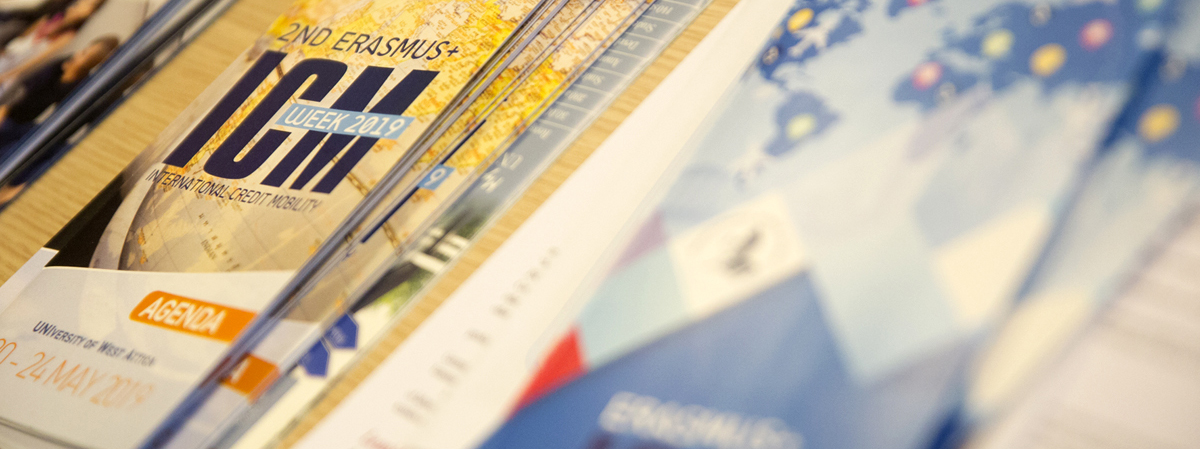ERASMUS+
Erasmus+

ERASMUS+ is the European Commission’s programme for new education, training, youth and sport, aimed at enhancing skills, employability and modernizing education, training and youth systems in all areas of Lifelong Learning (Higher Education, Vocational Education and Training, Adult Education, School Education, Youth Activities, etc.).
The action of the Erasmus+ programme in the field of higher education is inextricably linked to the Erasmus programme and grants the mobility of students and staff to Higher Education Institutions in participating countries.
The mobility of students and staff abroad is particularly important given the multitude of benefits involved. Through Mobility, students have the opportunity to develop new skills and qualifications that contribute to their personal development. Specifically, students are given the opportunity to improve their language skills, develop intercultural skills, and become European Citizens; additionally, students moving to internships can gain valuable work experience in a foreign business or organization.
Erasmus+ helps reinforce skills and employability and support the modernization of education, training and youth systems. It lasts seven years and will have a budget of € 14.7 billion, 40% higher than today’s levels. More than 4 million people will receive support for study, work or volunteering abroad, including 2 million higher-education students, 650,000 vocational training students and apprentices, as well as more than 500,000 young people participating in exchange or exchange programs abroad.
The Erasmus Programme was named in honor of the Dutch Erasmus Desiderius van Rotterdam (Rotterdam 1466 – Switzerland 1536), who remained in history as a philologist, theologian and great humanist. He studied in France, Italy and England and was fluent in ancient Greek and Latin. A professor at the University of Oxford and a doctorate at the University of Turin, he maintained personal contacts with many scholars of his time, traveling frequently. His work is inspired by philanthropy, human values, the unification of European culture, characteristics that make him a typical representative of the humanist spirit at large.
A typical example of Erasmus about the relationships of tolerance and altruism that humans have to possess is the following: “I wanted to talk to the birds. I want to ask them how they share the sky with their brothers so well. Two people were killed yesterday. They shared an apple tree“.



